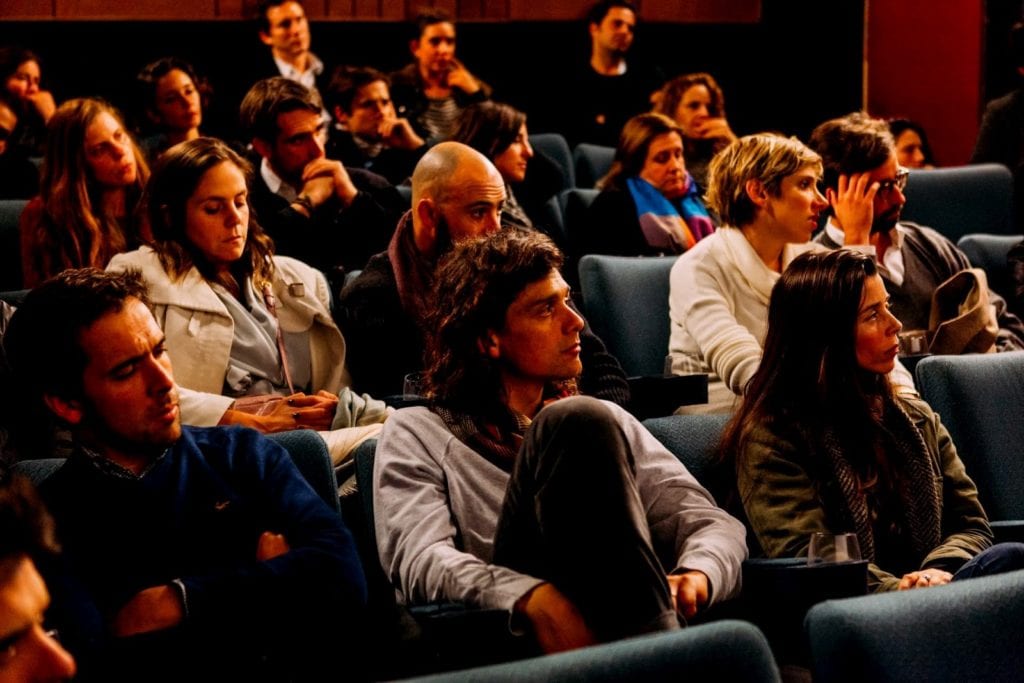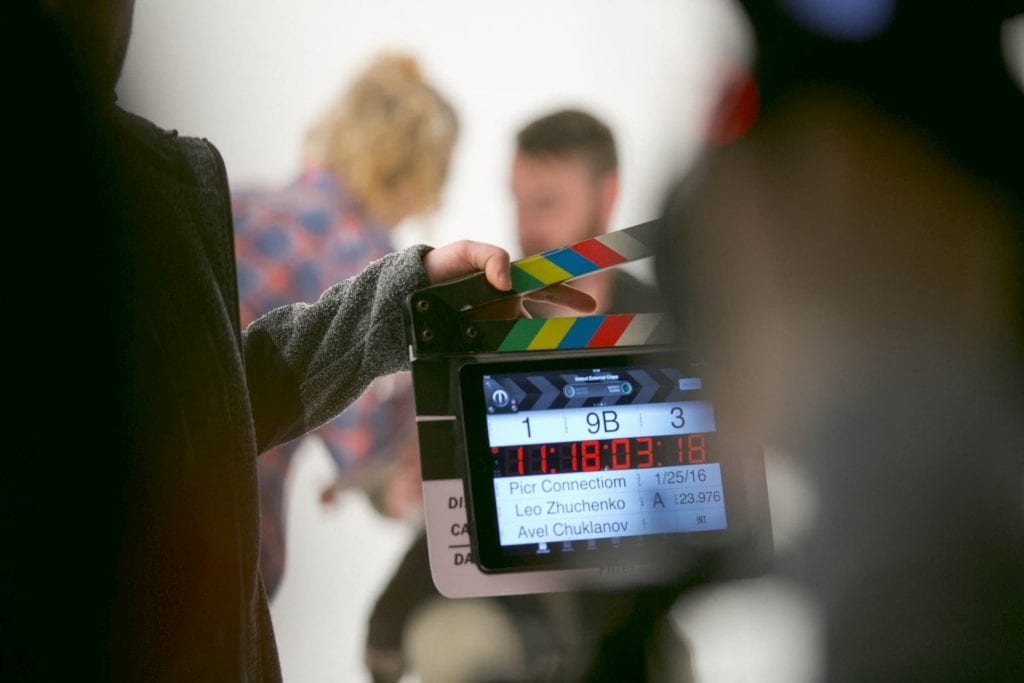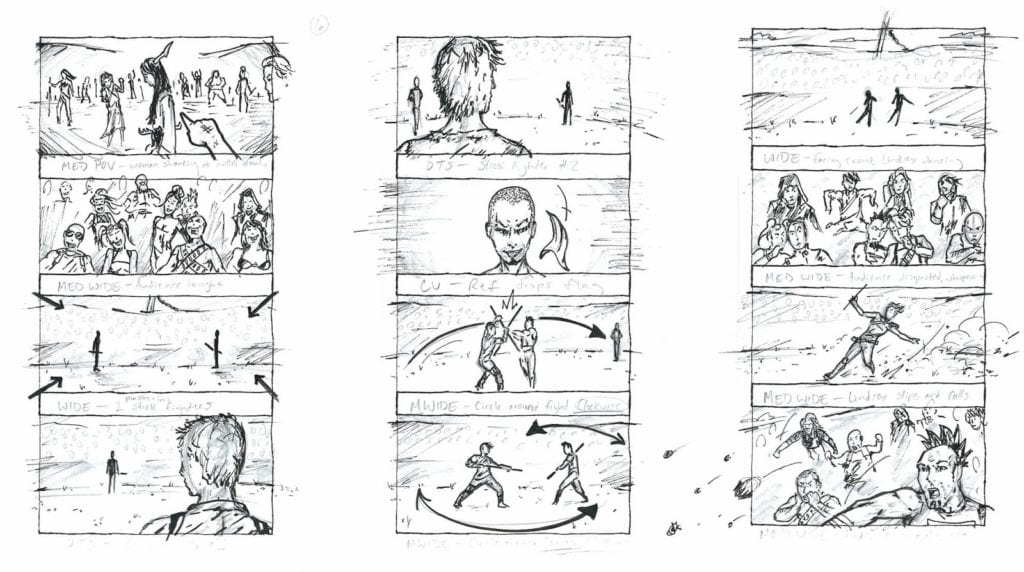Pre-Production Tips: The Most Important Things To Remember
“Everything is predetermined in the pre-production period. I visually design the whole thing, and I know when things will happen” – Alejandro Gonzalez Inarritu
Every film, whether it be a Hollywood blockbuster or micro-budget short film, needs careful planning. Without thoroughly mapping out and visualizing crucial components of your production before shooting takes place, you’ll most likely not have a great film — or worse — you won’t have a film at all.
Pre-production is where all your planning and organizing takes place. It’s arguably the most important phase of any film production, which will require a great sum of effort. Even some of the top-notch producers struggle with this part of the filmmaking process, so don’t be discouraged.
The goal of this post is to relieve feelings of unease and stress for beginner filmmakers who may feel intimidated by the pre-production process, or are unsure where to even begin. Depending on the scale of your production, there’s a lot of things that go into pre-production — but we’ll go over some of the most important pre-production tasks and how you can go about them.
We understand that filmmaking can seem impossible these days while the COVID-19 pandemic is going on. However, even with all the restrictions and repercussions, filmmakers are continuing to find ways to produce their films.
Need Pre-Production Help During The Pandemic?
Now, without further ado, let’s dive into some of the most important pre-production steps every filmmaker should remember.
Script Writing and Development

A screenplay, similar to a blueprint, is the very foundation of any film production. Without a completed script, it’s impossible to plan out your production.
How To Turn A Great Idea Into A Great Script
Having a script is like having the sketch before a painting. It’s purpose is to inspire and guide the artist to the finished product. For the producer, or any independent filmmaker, it’s the key to organizing an entire production.
It informs you of the locations, amount of characters, props, time of day, character involvement for each scene, potential equipment, etc. This is all crucial information for pre-production costs and planning.
The script will often give you an idea on the type budget you’re working with and specific resources you will need for the shoot.
Writing, rewriting, and initial planning is typically known as the development phase and it takes place right before pre-production. However, this process can often bleed into pre-production if you’re continuing to work on the script or if you’re still searching for key members of your production.
Generally, when you have a completed script, this is when you begin searching for the key creative members of your production, — such as the director, producer(s), cinematographer, key talent, and other members you feel will have a major role in the production of your film.
If you’re working with a low budget short film, your goal is likely to save money. You may not have the necessary funds to hire experienced or union cast and crew. If this is the case, try reaching out to friends, family, or community filmmakers who are willing to work for free.
There are great sums of people out there looking to gain experience and a portfolio of work with little to no pay. This is typically the road many filmmakers take when they first start out, so it’s not unusual at all. Instead of pay, you will earn new friendships and networks of like-minded individuals.
Build An Audience

Understanding who your audience will be is a very important pre-production step once you have the script. You should begin considering the purpose of your film and why you want to tell it — although this is also something you should be thinking about when actually writing the script as well.
Thinking about what you plan to do with the film helps you greatly when doing revisions, marketing, networking, shooting, distributing, etc.
Some people may just want to make a film for the heck of it, which is totally fine — you do you! But the case most of the time is filmmakers needing some type of outlet for their films to get noticed or picked up.
If you’re shooting a film for film festivals, make sure you read the guidelines and rules so that you aren’t wasting any time and/or money on things you’ll end up cutting out later. Also, check out some of the previous winners and see what types of films get noticed in certain competitions.
If you’re shooting a film for distribution or a streaming service, make sure you market and advertise as much as you can. Build a social media following to increase viewership and interest in your project. Tell friends, family, and basically anyone you know about your film to get it out there.
You need to be loud if you want to get noticed!
Budgeting

Film budgeting is one of the important aspects of pre-production and should not be overlooked. Forging a budget for your film will not only inform you how much money you will need to raise to shoot your film, it will also give you an idea of everything you’ll need to produce your film.
Budgeting Your Film During Pre-Production
The budgeting process all begins with the script breakdown. Breaking down your screenplay will inform you of all the necessary props, personnel, locations, SFX, costumes, sounds, etc, you will need for each scene.
It also gives you an idea of certain equipment, crew members, and resources you may need to shoot certain scenes.
Have a scene where the cameras slowly dollies towards a door at the end of the hallway? You may need to look into some dolly equipment to get the perfect shot you’re looking for.
Once you have an idea of how many actors/actresses and crew members you’ll need to shoot your film, you’re going to need to consider the costs of hiring these people. However, the cost all depends on the scale of your production. If you’re shooting a micro-budget short film, you may be working with friends or colleagues willing to work for free.
But if you’re reaching out to people you don’t know who has a decent amount of experience, you may need to consider paying their rates.
Understand that when budgeting for a film, each phase of production (pre-production, production, post-production) will require a specific budget.
If you’re interested in learning more about the budgeting process and pre-production costs, check out our previous blog posts where we discuss budgeting for your film in pre-production and the most important things to know about film budgeting.
The Most Important Things To Know About Film Budgeting
Casting

Generally, in most independent and low budget films, members of the cast and crew consist of friends or friends of friends. This can be beneficial in many ways, mostly financially speaking, but it may also be hurting your chances of making a successful film.
Know that some members of your cast and crew will be determined by your script and the scale of your production. Your low budget short film may not need all the crew members in a higher budget indie feature film.
When figuring out who your cast and crew will be during pre-production, it wouldn’t be a bad idea to consider working with people you may not know, but may have the experience and drive you’re looking for. This can give you great experience working with filmmakers and actors/actresses you aren’t familiar with — and who knows, you may work better or generate ideas better with someone new.
You can find various filmmakers and talent within your community, whether through social media groups — such as Facebook — websites, school boards, etc. There are plenty of resources for finding the key members of your film, so get out there and get networking!
Note that we aren’t implying that you’re required to work with people you don’t know about your film. If you’re feeling confident with the network of friends you already have for shooting your film, go right ahead and call them up! We’re simply saying reaching out to like-minded and hungry independent filmmakers and artists within your community could be very beneficial to your production.
Storyboards

Creating a storyboard is another important step of pre-production. Making a storyboard will allow you to plan out and visualize your film shot-by-shot. It can also give you a good idea of the specific equipment, locations, and personnel needed for each shot and scene.
A storyboard can also be a great resource for other members of your production — such as the cinematographer and production designer. This can be a valuable item for these members as they can envision the story you’re trying to tell and how you want to tell them.
It can also be a great resource for post-production when working on the edits of the film. Storyboards can give you an idea of the flow and pacing of a scene based on the specific shots sketched in a particular sequence.
Production Schedule

When going through the pre-production process for your film, it’s important that you formulate a production schedule, also known as a shooting schedule.
The purpose of the shooting schedule is to fully optimize the efficiency of shooting your film. It will allow to know the specifics of the number of days you’ll need to shoot, which members of the cast and crew you’ll need each day for certain scenes and shots, how many hours of shooting will take place each day, and much money each day of shooting will cost.
Take a look at some examples of production schedule templates to get a better idea of how they look and what the specific components of a production schedule are.
It’s important to note that when making a production schedule, you should reorder and group scenes from your script together to make your shoot more efficient. You should avoid shooting your film in the exact sequential order of your story because this will make it much more difficult to shoot.
What You’re Forgetting In Your Production Schedule
Conclusion
Hopefully after going over some of the most important components of the pre-production process, you feel more confident and less stressed out about this phase of production.
Pre-production can take anywhere between a couple months to a few years. There’s no time expectancy for this process. It all depends on the type of production you’re working on, how many people you need to attach to the production, the specific resources and locations you’ll need, equipment, fundraising, rehearsing, scheduling, etc.
It’s not an easy process at all. It generally takes the most time and effort out of all the other phases of production.
But don’t be discouraged. Properly organizing and planning a pre-production schedule will make the process a hundred times easier and doable.
Try looking at it in a positive light. Pre-production is the beautiful process of a simple great idea and screenplay coming to life. It’ll all be worth it when you’re sitting back in a chair with a bag of popcorn in your hand, enjoying your film on the big screen.
Don’t forget to check out our funding opportunities for the chance to win up to $10,000 in funding for your film.